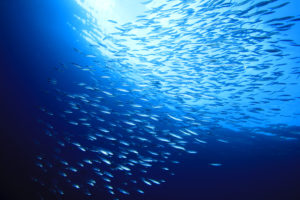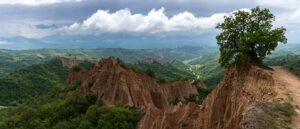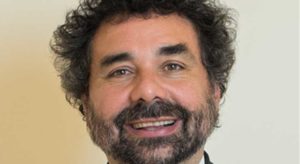2 May, Milan – “Terra Viva”, the manifesto for a new social, economic and agricultural agreement, was presented at Cascina Triulza, the pavilion of Civil Society at Expo 2015. The event was also attended by the environmentalist Vandana Shiva, Ugo Biggeri of Banca Etica and Etica Sgr, Don Luigi Ciotti of Libera and Maurizio Martina, Minister of Agricultural, Food and Forestry Policies, with a delegation to Expo Milan 2015.
The democracy of the Land
The manifesto, promoted by Banca Etica, Etica Sgr, Navdanya International and Fondazione Triulza, indicates a new path for overcoming the environmental and economic crisis that is affecting the planet, at a time when, by 2030, a city covering the size of the whole of South Africa will be added to the urbanised land. Fertile land is eroded at a speed of 10 to 40 times greater than its regeneration ability. 40% of the wars in the last 60 years have been caused by climate, soil and resources.
The Terra Viva manifesto is the fruit of the work and development – led by the environmentalist Vandana Shiva – of a panel of researchers and experts originating from across the world, including Luc Gnacadja, former secretary of the UN Convention to combat desertification; Andrea Baranes, economist; Nnimmo Bassey, alterative Nobel prize.
In the vision offered by the manifesto, agriculture plays a crucial role. The new agriculture restores soil fertility through organic methods. It ensures fair prices to farmers so that they can stay on their land to continue producing food for citizens and communities. It replaces the linear process of exploiting the soil and resources with a circular process of restitution that guarantees resilience, sustainability, justice and peace. It is agriculture that can generate a new economy and a new democracy: the democracy of the Land.
In the future proposed by the Manifesto, finance must be a tool at the service of people and the real economy: by way of the separation of commercial banking from investment banking, the tax on financial transactions and the prohibition on speculative use of derivatives on raw materials and on food.
Download the Terra Viva manifesto
The words of the stars of the presentation on 2 May
Vandana Shiva, leader di Navdanya International: “The economy, which is part of society, has been positioned above society, beyond democratic control. The well-being of people and communities has been replaced by the well-being of the multinationals, while real production has been replaced by the abstract multiplication of capital. The result is the disappearance of democracy and the increase of economic imbalances. We need a new agreement that recognises that we are the soil: we come from the soil, we are sustained by the soil. Taking care of the land is the most important work that farmers can do. The message that we are launching from the extremely important showcase of the Expo is strong and clear: the new democracy is the democracy of the Land”
Ugo Biggeri, Chairman of Banca Etica and Etica Sgr: “Banca Etica and Etica sgr work in a network with the main institutions that, across the world, seek to give life to finance at the service of sustainable development in the interests of all people and our planet. In recent decades, unfortunately, speculative finance has not hesitated to even use primary goods such as food to gamble with increasing the profits of the very few to the detriment of entire populations. We ask that raw food products be taken off the speculative markets, as this makes food prices volatile and often inaccessible or unreasonably expensive. In our investments, we exclude all multinationals that produce GMOs, exploit the soil indiscriminately, pollute or speculate on food. We give credit, on the other hand, to the very many small entrepreneurs who choose to cultivate the land with organic methods, in respect of the environment and the rights of workers, creating a positive return for their community”
Sabina Siniscalchi, Vice Chairman Triulza Foundation: “The organisations of civil society operate in places where problems linked to nutrition manifest most virulently. In rural areas of developing countries, where the majority of the hungry live, in the slums of the megacities where the health-sanitary conditions are not suitable for healthy eating, but also in the poor and disadvantaged social sectors of the industrialised world where the lack of opportunities and resources is associated with “modern” forms of malnutrition such as obesity. Precisely by engaging in areas of hunger, our organisations have put together some innovative solutions to ensure food self-sufficiency and to activate systems of sustainable farming.”
Don Luigi Ciotti, Chairman of Libera: “We have to start caring for our planet again because an ethic of cohabitation cannot exist without an ethic of the land. The land is not only a generator: it is also a teacher of life. It teaches persistence, profundity, shared responsibility and – as a common good – it indicates the path of sharing and social justice”.
Environment




